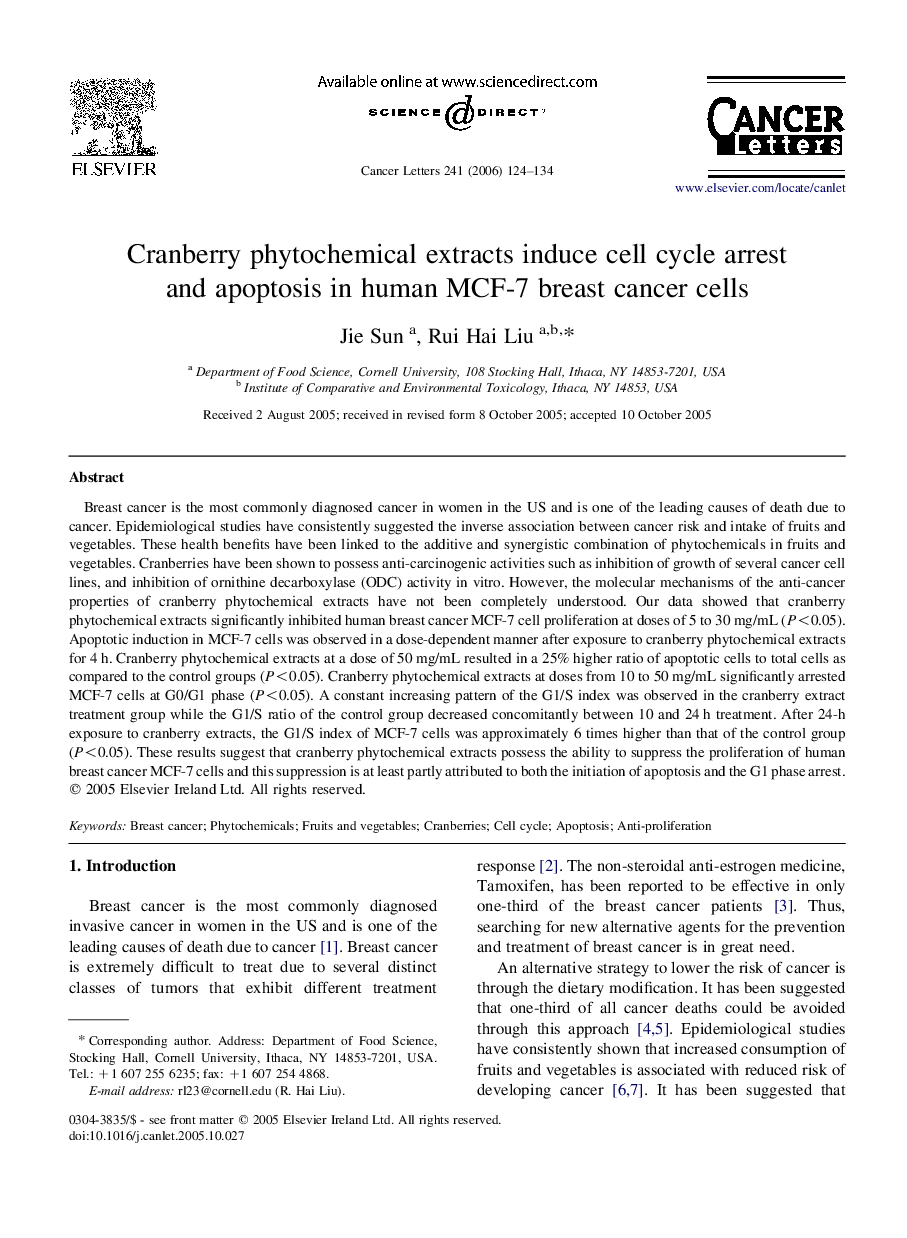| Article ID | Journal | Published Year | Pages | File Type |
|---|---|---|---|---|
| 2115637 | Cancer Letters | 2006 | 11 Pages |
Breast cancer is the most commonly diagnosed cancer in women in the US and is one of the leading causes of death due to cancer. Epidemiological studies have consistently suggested the inverse association between cancer risk and intake of fruits and vegetables. These health benefits have been linked to the additive and synergistic combination of phytochemicals in fruits and vegetables. Cranberries have been shown to possess anti-carcinogenic activities such as inhibition of growth of several cancer cell lines, and inhibition of ornithine decarboxylase (ODC) activity in vitro. However, the molecular mechanisms of the anti-cancer properties of cranberry phytochemical extracts have not been completely understood. Our data showed that cranberry phytochemical extracts significantly inhibited human breast cancer MCF-7 cell proliferation at doses of 5 to 30 mg/mL (P<0.05). Apoptotic induction in MCF-7 cells was observed in a dose-dependent manner after exposure to cranberry phytochemical extracts for 4 h. Cranberry phytochemical extracts at a dose of 50 mg/mL resulted in a 25% higher ratio of apoptotic cells to total cells as compared to the control groups (P<0.05). Cranberry phytochemical extracts at doses from 10 to 50 mg/mL significantly arrested MCF-7 cells at G0/G1 phase (P<0.05). A constant increasing pattern of the G1/S index was observed in the cranberry extract treatment group while the G1/S ratio of the control group decreased concomitantly between 10 and 24 h treatment. After 24-h exposure to cranberry extracts, the G1/S index of MCF-7 cells was approximately 6 times higher than that of the control group (P<0.05). These results suggest that cranberry phytochemical extracts possess the ability to suppress the proliferation of human breast cancer MCF-7 cells and this suppression is at least partly attributed to both the initiation of apoptosis and the G1 phase arrest.
